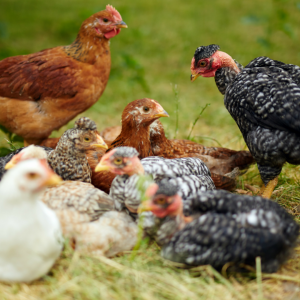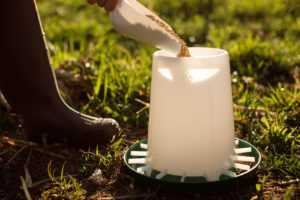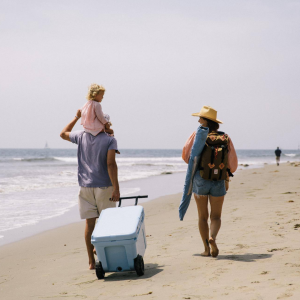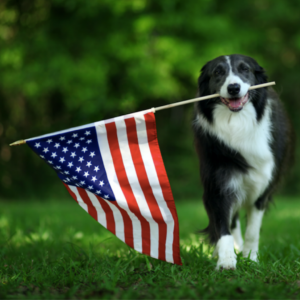 Wondering when it’s time to begin transitioning chickens to layer feed? For backyard chickens, most egg-laying breeds reach adulthood at 18 weeks and lay their first egg— perfect timing when you can start your chickens on layer feed.
Wondering when it’s time to begin transitioning chickens to layer feed? For backyard chickens, most egg-laying breeds reach adulthood at 18 weeks and lay their first egg— perfect timing when you can start your chickens on layer feed.
This feed switch is an essential step in the road to farm fresh eggs because hens require different nutrients to produce eggs as compared to when they are growing.
To produce an egg each day, hens need high levels of calcium, vitamins and minerals. Hens transfer many of these nutrients directly into their eggs, so the chicken feed ingredients in the layer feed play an essential role in the eggs that hens produce.
Consider the following steps when transitioning to a complete chicken layer feed:
1. Choose a chicken feed formula that matches your goals.
Select a complete layer feed before the transition begins. Ideally, by week 16 the layer feed decision should be made. That way, the transition can be planned.
First, look for a complete layer feed. This means the feed should be formulated to provide everything hens require without a need to supplement.
There are many complete layer feed options available, Kissimmee Valley Feed offers Purina® Organic layer feed, Purina® Layena®Plus Omega-3 and Purina® Layena® pellets and crumbles.
Each of these chicken feed formulas is designed to meet specific flock goals. No matter the goals you have. be sure the layer feed is made with simple, wholesome ingredients. The feed should include 16 percent protein and at least 3.25 percent calcium as well as key vitamins and minerals.
These are just the essentials, though. Look for additional ingredients in the layer feed to bring hen health and egg quality to the next level.
A few next level ingredients to look for include:
Rich, yellow yolks: Marigold extract
Strong shells: Oyster Strong™ System
Immune and digestive health: Prebiotics and probiotics
Vibrant feathering: Essential amino acids such as lysine and methionine
Omega-rich eggs: Added omega-3 fatty acids
2. Transition over one week.
When birds reach 18 weeks old or when the first egg arrives, slowly switch your chickens to a layer feed. It is important to make the transition over time to prevent digestive upset.
For our backyard birds on our farm in Missouri, we have found it’s best to make the transition over time rather than all at once. We mix the starter and layer feed evenly for four or five days. Birds used to crumbles? Start with a crumble layer feed. The same goes with pellets. The more similar the two feeds are, the more smoothly the transition will go.
Many hens will eat the mixed feed without noticing a difference. When hens are eating both feeds, flock owners can stop feeding the starter feed and make the complete switch to all layer feed. It is important to give your birds enough time to adjust to the new diet. Most birds will adjust within a couple of weeks but some can take a month or longer to fully transition to their new diet.
3. Keep it consistent.
Once the transition to layer feed is complete, it’s best to maintain a routine.
We recommend providing free choice layer feed to hens and switching out the feed each morning and evening. If birds are free-ranging, offer the complete feed to hens before they go out in the morning. This will help them consume the nutrients they require before filling up on less nutritious insects and plants.
It’s important for the complete feed to make up at least 90 percent of the hen’s diet. We feed complete layer feeds on our farm. They are formulated to provide all the nutrients hens require at the correct levels. It’s reassuring to know that each bite of feed is balanced to keep our hens healthy and producing quality eggs.
Kissimmee Valley Feed can help you to Transition Chickens to Layer Feed. Visit us!
Source: Purina Mills





 Buy 2 get 1 free on all
Buy 2 get 1 free on all  We think about summer feed storage and keeping feed the right way and serving it to your flock in the most efficient way. This can save you time and money. We all know summer brings heat! As well as important considerations when storing poultry and any other pet or livestock feed.
We think about summer feed storage and keeping feed the right way and serving it to your flock in the most efficient way. This can save you time and money. We all know summer brings heat! As well as important considerations when storing poultry and any other pet or livestock feed. Beat the heat with our 10% off coolers sale! Offer is valid at Kissimmee Valley Feed Store #2 at 215 13th Street St. Cloud, FL 34769 only. We carry coolers as well as cups, tumblers, accessories, apparel, and even more!
Beat the heat with our 10% off coolers sale! Offer is valid at Kissimmee Valley Feed Store #2 at 215 13th Street St. Cloud, FL 34769 only. We carry coolers as well as cups, tumblers, accessories, apparel, and even more! There’s a Taste of the Wild Dog Food sale happening at Kissimmee Valley Feed Store #2 this month!
There’s a Taste of the Wild Dog Food sale happening at Kissimmee Valley Feed Store #2 this month!